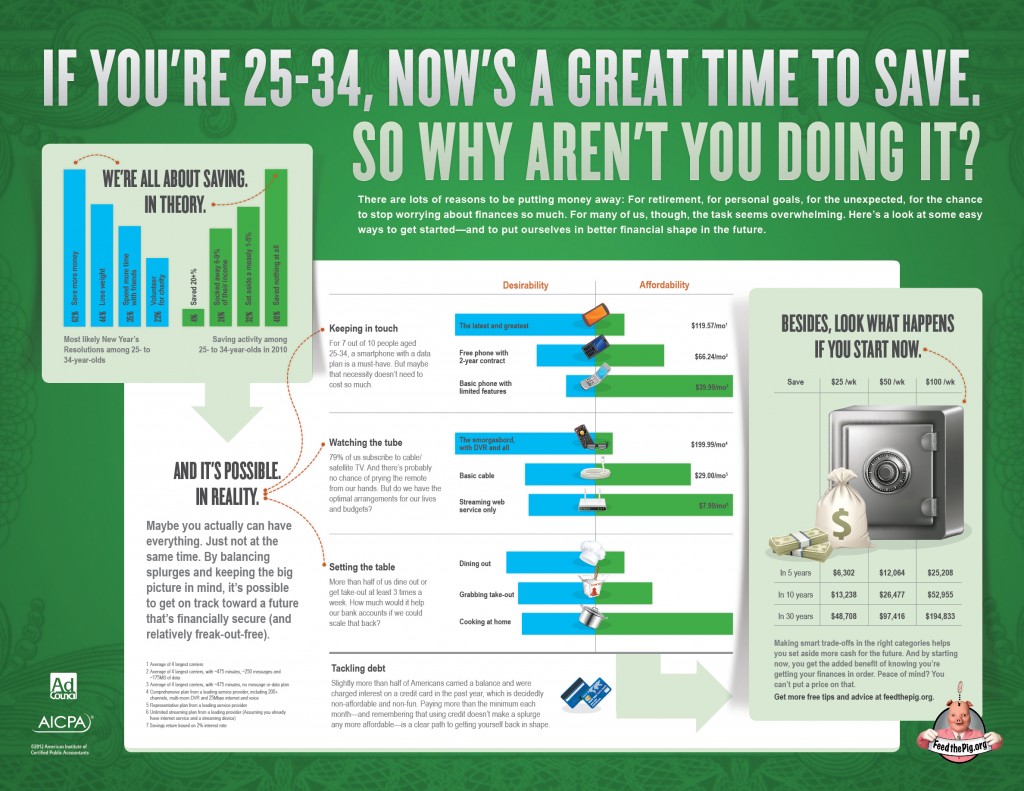One thing I can tell you has not changed in becoming a student again is that it is still tough to save money. I’m not quite eating ramen like most undergrads, but a graduate student budget isn’t much bigger. It is hard to save, and it is really hard to save when you’re young. It is really important to start setting aside money early, though, because getting in the habit can really help plan for the future.
The American Institute of CPAs and the Ad Council on a national public service began a campaign called Feed the Pig to encourage millennials ages 25-34 to take control of their finances and make saving money a part of their daily lifestyle. (Warning, if you go to the website, it starts talking to you.) By saving money early, it’s amazing to find out that it can be easy to get control of your finances. The campaign wants this age group to see the importance of saving – not just for a big purchase but farther down the road for retirement and family.
I’ve included an infographic, based on a recent survey conducted by the AICPA and the Ad Council, illustrating how small, simple changes can make a big difference in the long term. Rethinking your smart phone data plan or nixing cable and opting for streaming services are just some of the options presented to help millennials see easy ways to increase savings.
Thanks to Hannah Harrill for sending this my way. I know I already have automatic payments sent to my savings for my “coffee fund” to make up for any lattes I grab on my way to class. How do you save?






Interesting! What really caught my eye on the info graphic was the right hand side about the savings. That saving projection is essentially with no discount rate…. For instance, $25/wk * 52 weeks = $1300/yr, which *5yr = $6.5k. If you are able to do the far right ($100) it is roughly the same ($5000/yr * 5 = $25k), but look how “incredible” it becomes when you add an interest rate. At a realistic 1/2% (today’s rates…) you still net out $2.5k, which last time I checked buys a lot of Chipotle burritos.
If you are able to stomach the risk, the S&P 500’s return for 2011 was 6.88%. Assuming a similar rate (I’m looking at you, Greece), you would be up WAY more! (nearly $59k, or roughly $32k more than parking your money in the bank..). You could always end up with zero, as well..
Thanks for sharing this Emily!
Chris, would you like to draw that in an infographic for me? I am sure it would be really awesome!! And make sense to all my non-finance readers 🙂
In all seriousness, thanks for sharing the information about a discount rate. There are so many things about managing my finances that I’ve also learned being in school. If only I had gotten some of that info the first time around…
I’d love to try! Let me see what I can generate during the holiday. Have an excellent one, by the way!